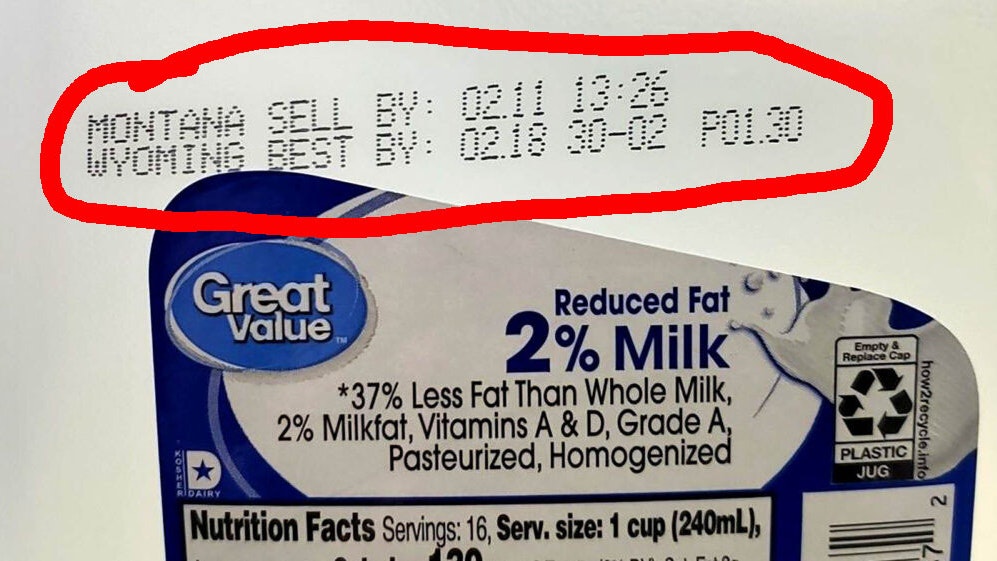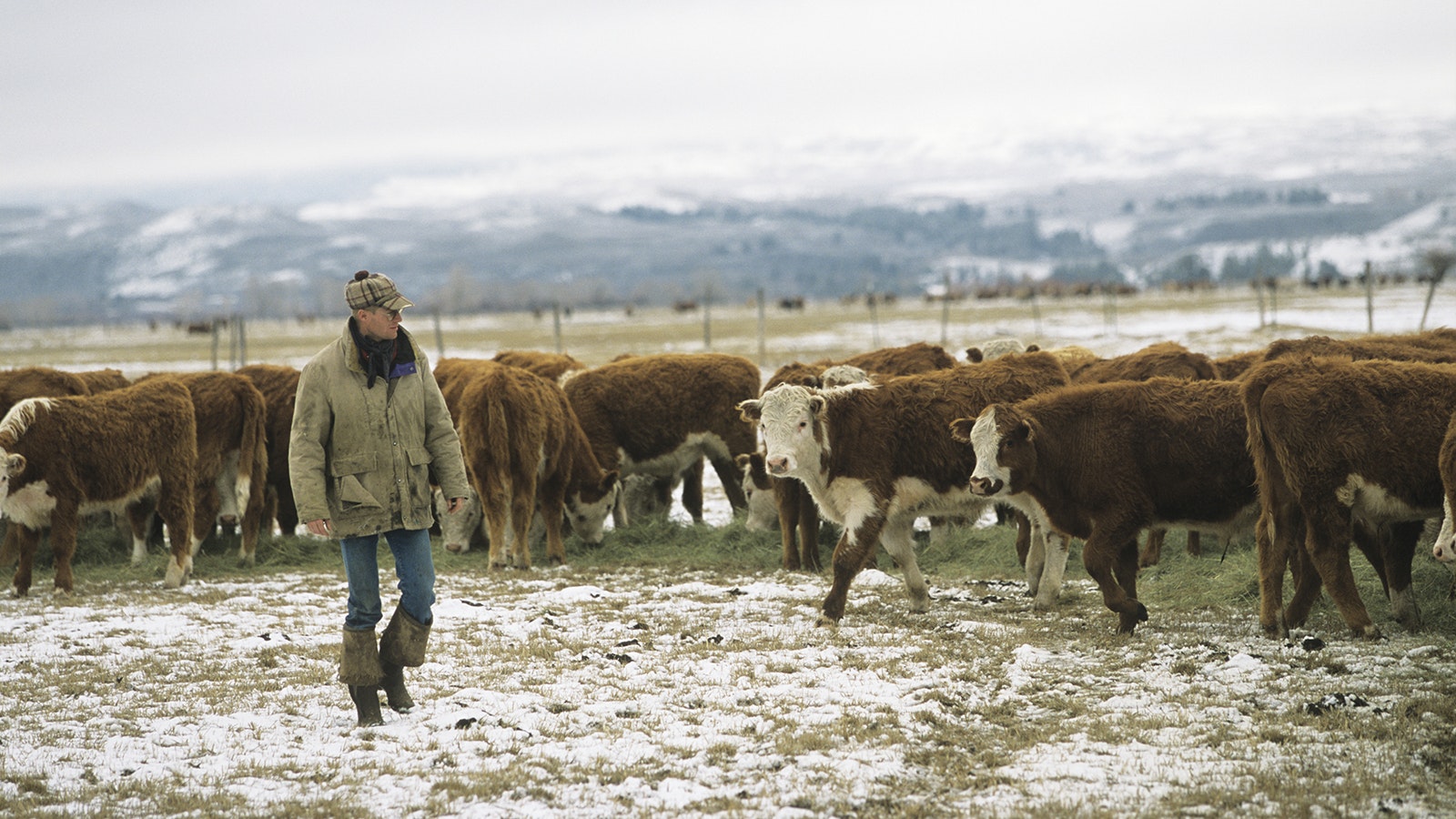Those searing prices for beef at the grocery store have President Donald Trump calling for an investigation into allegations of price-fixing by the nation’s big four meat packers, JBS, Tyson, Cargill and Marfrig.
Trump on Friday announced a Department of Justice investigation into the meat conglomerates that, between them, are the middlemen for 55% to 85% of all the chicken, beef and pork sold in America.
The companies buy livestock, fatten them up, then slaughter and process the meat before selling it to retailers, who sell it to the general public.
“I have asked the DOJ to immediately begin an investigation into the Meat Packing Companies who are driving up the price of Beef through illicit Collusion, Price Fixing, and Price Manipulation,” Trump said in a post on his social media platform Truth Social. “We will always protect our American Ranchers, and they are being blamed for what is being done by Majority Foreign Owned meat Packers, who artificially inflate prices, and jeopardize the security of our Nation’s food supply.
“Action must be taken immediately to protect Consumers, combat Illegal Monopolies, and ensure these Corporations are not criminally profiting at the expense of the American People,” Trump continued in the post. “I am asking the DOJ to act expeditiously. Thank you for your attention to this matter!”
That had Wyoming farmers and ranchers largely cheering the president on, even as they point to other fundamental laws that must change to actually fix the situation.
The issues run much deeper than the concentration in the meat-packing industry, generational Wyoming rancher and state Sen. Ogden Driskill, R-Devils Tower, told Cowboy State Daily.
“It’s been a huge issue for decades,” he said. “But it actually should go much deeper than the four packers. It needs to go into the Packers and Stockyards Act, which was set up to stop this very thing. The four packers are a piece of it, but they’re only one piece of it. … We need to have the federal government enforce their own rules.”
Meat packer investigations are something Wyoming has been urging for decades, said Crook County cattle rancher and former state legislator Tyler Lindholm.
“I think it’s a glimmer of hope that President Trump is putting the DOJ on this, and has identified that this might be a situation,” he told Cowboy State Daily. “We’ve been saying that for decades in the state of Wyoming and in western cattle-producing states, but to see somebody from the East recognize that is good.”
But Lindholm hopes that the investigation doesn’t stop with just meat packers. He believes the entire system needs a do-over.
“What we need them to recognize next is that their laws are what made this possible, this monopoly,” he said. “The monopoly wouldn’t exist if there weren’t laws mandating the monopoly. So my hope is that yeah, absolutely, the DOJ and the executive branch continue to investigate and look into this problem, but also that Congress recognizes it’s their laws, it’s their fault, and, if they can fix that, then we’re in a great spot.”
Otherwise, Lindholm fears that administration actions to break up the big four will just lead to the same status quo, albeit with companies that simply have new names.
Why Beef Prices Are So High
Prices for beef at the grocery store have seemingly been on a never-ending escalator to the sky since the COVID-19 pandemic in 2020. Broken supply chains at the time caused a scarcity of product in grocery stores, leading to higher prices, even as over-supply met a bottleneck at meat packing plants. The bottleneck was caused in large part by COVID-19 restrictions on how close people could be to one another.
Supply chains ultimately improved, but demand for beef in the face of short supply has kept prices cooking ever since. Monday morning, the price of four small sirloin steaks weighing a pound was $14.94 at Walmart in Cheyenne, while the price of two New York strip steaks weighing a pound was $16.97.
Cheyenne cattle rancher and former National Cattlemen’s Beef Association president Mark Eisele attributes those high prices to several factors.
Drought, for one, has resulted in a big sell-off of the American cattle herd, putting their numbers at historic lows.
A screwworm outbreak has also closed the nation to Mexican cattle, which typically helps provide a cheaper cut of beef for many American plates.
Screwworms are a flesh-eating parasite that bore into its living victim’s flesh until it dies. Public officials have linked the outbreak to criminal gangs smuggling stolen livestock across borders. Failure to control screwworms will lead to even worse problems with supply and potentially cost the beef industry billions.
So far, there have been 11 cases of screwworms in Mexican states that border America, all treated and contained. USDA Secretary Brooke Rollins has said the United States is not yet comfortable re-opening that border, though she feels things are moving closer to that endgame.
“We’ve had some unusual stuff here with tariffs, trade, and the Mexican border being closed,” Eisele said. “But I think it’s going to level off. I think we’ve seen the highest of the highs for the cattle market.”
Still, the fix won’t be fast in coming, Eisele said. It takes time to rebuild cattle herds.
“The cattle and beef industry is one of the most complex commodity markets in the world,” he said. “It does not rise and fall like grains and such. It’s more complex than chicken and pork and it takes two to three years to ramp up production. It’s going to take us a while to build enough of a herd size to overcome that.”
Wyoming Stockgrowers Association Executive Vice President Jim Magagna said he believes high prices are more related to supply-demand issues than anything else but that he still supports an investigation.
“It is concerning to us that that the big four packers have so much control in the marketplace that virtually everything we produce, with (few exceptions) has to go through those four,” he said. “But that’s stopping short of saying that anything they’re doing is illegal. It’s just always good, when you have concentration in any industry to make sure there aren’t illegal, unlawful practices taking place.”
Fears Making The Situation Worse
Eisele, too, favors an investigation into the meat packing industry. But the trouble with that, he added, is that the prior investigation into the industry has yet to conclude.
“NCBA actually pushed for an investigation like three or four years ago, and oh my God, the wheels of justice with the DOJ turn incredibly slow,” he said. “We would like to get the facts and the results of that investigation. They have not been forthcoming.”
Eisele believes it’s possible that particular investigation just fell through the cracks when the Trump administration came on board.
“He’s been in tariffs, he’s been in trade, he’s been trying to stop wars,” Eisele said. “He’s doing all these things that I’m sure the cattle things weren’t necessarily top of his list.”
But those results should be seen, Eisele believes, before embarking on a brand-new investigation.
“There are some people in cattle country who just hate packers,” he said. “Absolutely hate them. And I get it. When they’re making $1,000 profit on a cow, you can’t help but be unhappy. But, without those packers, we are in real trouble because we have nowhere to go with those cattle. We can’t process enough of them at little packing plants or state-inspected plants to meet the demand.”
Right now, is a particularly difficult time in the industry, Eisele added.
“A lot of new packing plants are being opened, which has helped ease the demand, or at least the ability to make supply for the demand,” he said. “But the trouble is, right now we don’t have enough cattle for all those small packing plants, so I’m really concerned about their futures. And a lot of the big plants are running at three-quarter, sometimes 60% capacity because they don’t have enough cattle.”
Eisele also acknowledged that some of the existing meat packers are foreign owned. But forcing them to divest right now will only further concentrate an already too-concentrated industry, making the situation even worse.
“If they end up doing this investigation and it comes out where they make them divest themselves, those multinationals from those packers, you might end up with only two or three packers,” Eisele said. “And then you really start having the ability to control (prices).”
Lindholm, meanwhile, believes that the divested companies would just be quickly replaced with companies that have new names — and the same ongoing problem.
Simple Fix?
One simple fix that Eisele and other Wyoming cattle ranchers believe would help cure the situation is to allow state-inspected meat to be sold across state lines.
State inspections, Lindholm said, already have to meet substantially all the same requirements as federally inspected meat. In addition, state-inspected meat is considered safe enough to sell to people within state lines, so it doesn't make sense that the cuts are somehow not safe for people in the rest of the country.
Letting state-inspected meat across state lines will help the market take care of itself, Lindholm added.
“All sorts of economists have written about this, and they all come to the same conclusion that a truly free market will handle itself,” he said. “Capitalism does work, if you let it work. There’s a lot of people who misconstrue that we’re under capitalism now, and I’ve always argued … that we’re under corporatism, where we’ve got laws that mandate you go through certain companies and use certain companies. And I think that’s just about as horrible as it can be.”
More options will be a good thing, Lindholm added for everyone involved.
“We’re really good at raising and producing food here in the United States,” Lindholm said. “If we just give (consumers) the option to be able to buy it locally or not locally if they don’t want it’s up to them, you’ll see a dramatic price decrease. You’ll see more options in the marketplace, and you will see producers making more money for their products, not the middleman.”
Processors, in general, have to meet the same standards as federally inspected plants, Magagna said.
“Processors are not gaining any leeway by using state inspectors,” he said. “And yet, because the employee who did the inspections is paid by the state rather than the USDA, the product can’t be sold in interstate commerce. That’s particularly hard on a state like Wyoming, because we don’t have enough citizens here to begin to consume the amount of beef we produce.”
Eisele said National Cattlemen’s Beef Association has a bill in Congress right now that looks to allow state-inspected beef to be sold across state lines.
“Federal inspection is the big divider,” he said. “If we can get that interstate market opened up, it would be great.”
Roosevelt And His Sausages
Making laws is often likened to making sausages — something horrific that shouldn’t be watched if one is ever to enjoy sausages again. The quote is often attributed to Otto von Bismarck, though historians have called that into question. It could as easily have arisen from a story about Theodore Roosevelt and why he championed the Meat Inspection Act.
“Roosevelt ate sausages for his breakfast every morning,” Lindholm said. “He was a big sausage fiend. And then he read this story by Upton Sinclair called, ‘The Jungle.’”
Sinclair's book was really focused on the plight of immigrant workers in packing facilities, but it was also an eye-opener to Roosevelt from a food-safety standpoint, who became queasy at the thought of what was happening to his beloved morning sausages.
“This was back in the day when the federal government actually followed the Constitution, and we weren’t writing executive orders for everything,” Lindholm said. “Congress actually had to do something, which is wild. And Congress passed the federal Meat Inspection Act, which was signed into law by President Roosevelt, and it was a regulatory hurdle for meat-packing facilities.”
Over time, as the meat-packing industry grew in strength and consolidated into larger and larger players, the powerful lobby started pushing for certain amendments to the Meat Inspection Act, bringing about the Wholesome Meat Act in 1968.
“That created the federal inspection process which we live under today, where you’ve got to be a federally inspected facility, or your state can have some primacy as a state-inspected facility, and that’s how you can retail meat, is going through one of those types of entities, or through a custom-slaughter facility.”
The latter are where people can take a deer, a beef, or other animal to have their meat processed for their own consumption. The meat, even though it’s safe for that one family to eat, is somehow deemed unsafe for the public at large.
The rules, as they now stand, also prevent state-inspected facilities from selling beef or any other meat across state lines, which prevents many ranches from setting up their own, direct-to-consumer operations. The cost of federal inspection is too big a hurdle for most to even get started.
“That’s the rub in all of this,” Lindholm said. “When they did this in 1968, with the Wholesome Meat Act, they created, through the lobbying of the meat-packing facilities they created a centralized entity which you have to go through. They created this monopoly in 1968, and the federal government has yet to fix it since. That’s how the meat packing lobby took over the protein supply of the United States and has controlled it ever since.”
Renée Jean can be reached at renee@cowboystatedaily.com.





